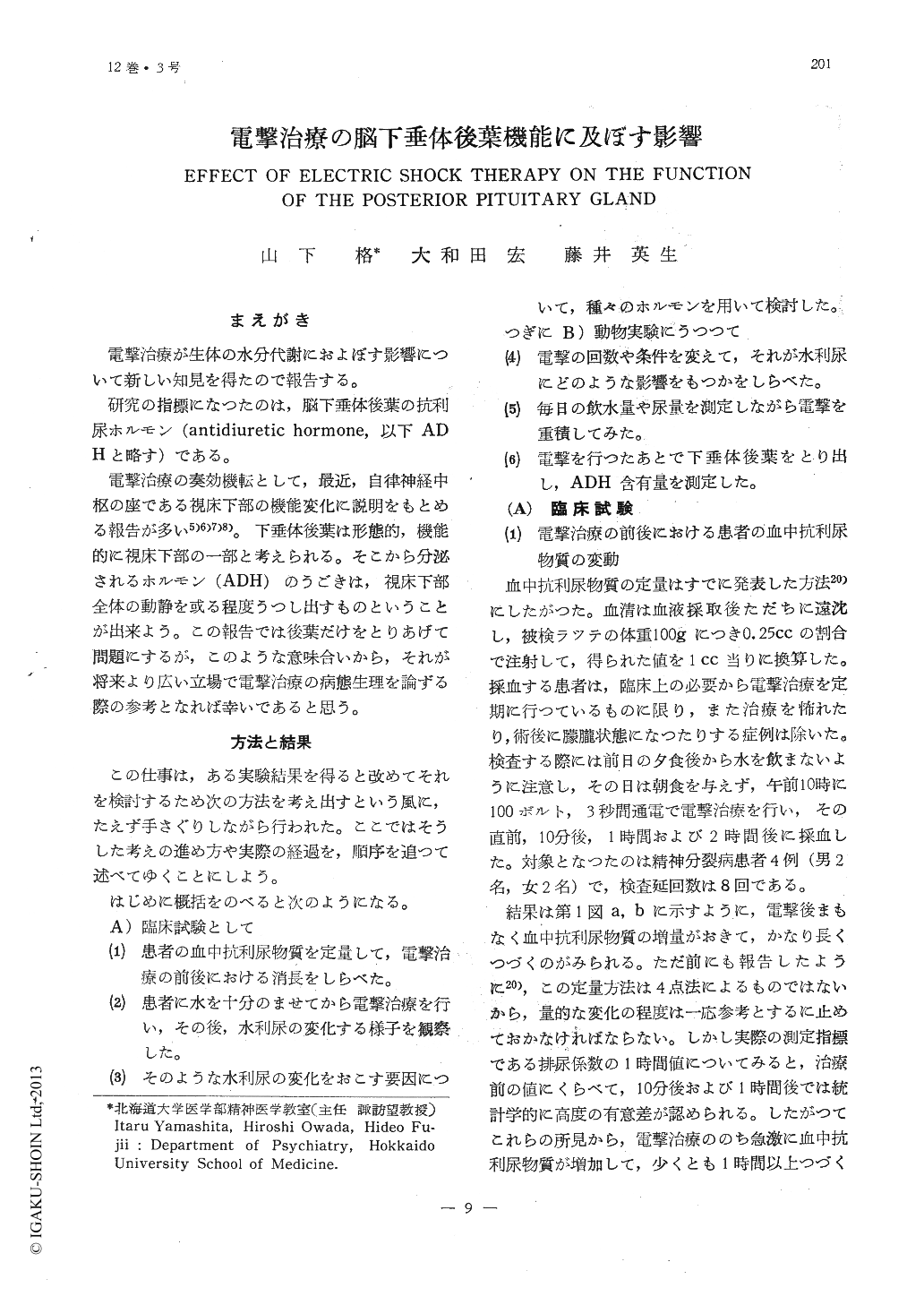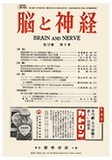Japanese
English
- 有料閲覧
- Abstract 文献概要
- 1ページ目 Look Inside
まえがき
電撃治療が生体の水分代謝におよぼす影響について新しい知見を得たので報告する。
研究の指標になつたのは,脳下垂体後葉の抗利尿ホルモン(antidiuretic hormone,以下ADHと略す)である。
The effect of electric shock therapy (EST) on the water metabolism Was investigated in terms of the function of the posterior pitui-tary gland. Results of clinical and animal experiments performed are summarized as follows:
(1) Amounts of antidiuretic substance in blood were estimated in psychiatric patients before and after electric shocks. It was noted that the amounts increased with statistical sig-nificance for approximately 10 to 60 minutes after the treatments.
(2) Electric shock was found to cause mark-ed diminution of urinary flow and augmen-tation of chloride concentration of urine last-ing from a half hour to nearly two hours in patients who were in hydrated state. The same effect was observed also by non-con-vulsive EST with Thiobal injection.
(3) It was ascertained that adrenaline, nor-adrenaline, insulin and adrenocortical hor-mones, supposed to be liberated by EST, had scarcely any effect on the rate of urine ex-cretion. A minute amount of pitressin, on the other hand, caused remarkable change in urine flow in quite a similar manner as did EST.
It was assumed from the above findings that EST brings about the increased secre-tion of antidiuretic.

Copyright © 1960, Igaku-Shoin Ltd. All rights reserved.


